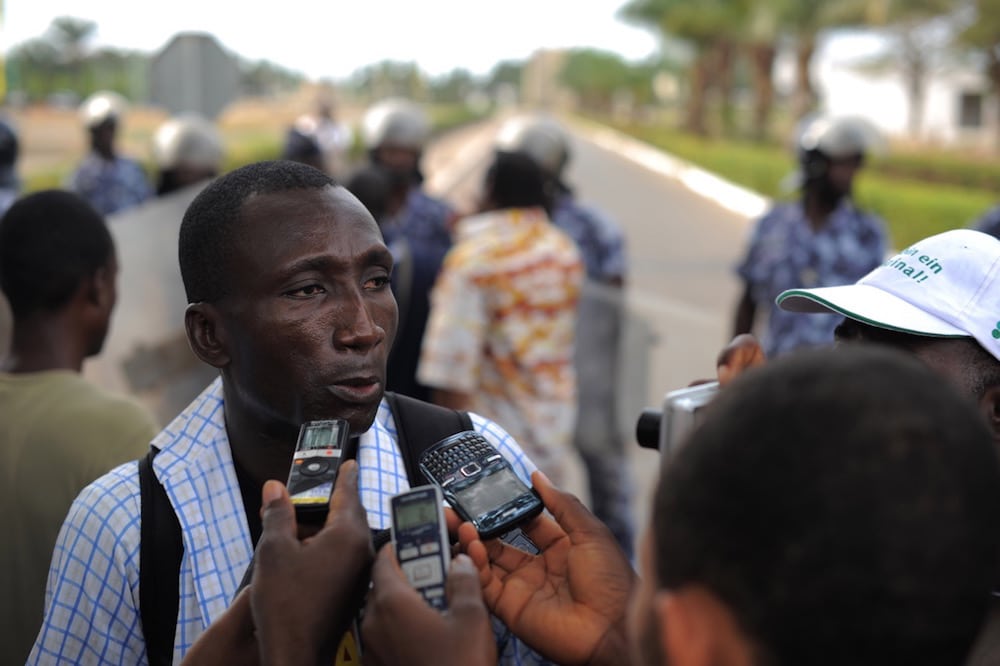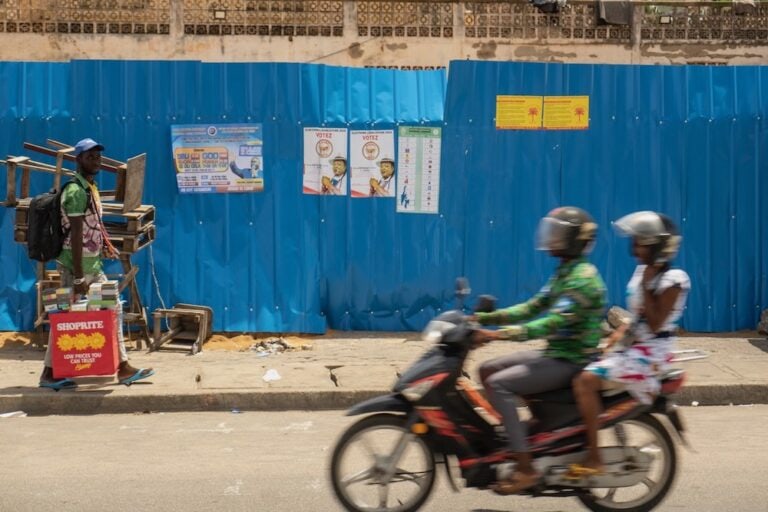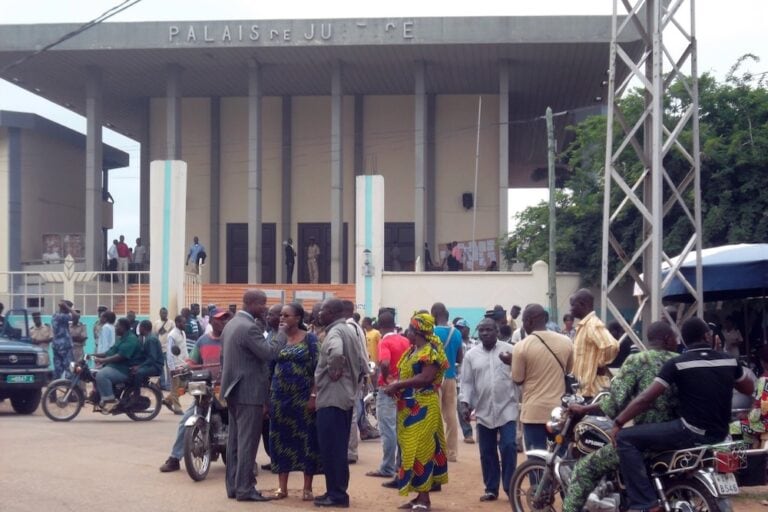Togolese journalist Ferdinand Ayité is among 17 journalists from 7 countries who have filed a complaint with French prosecutors against the NSO Group for being a potential target of surveillance by their Pegasus spyware.
This statement was originally published on rsf.org on 5 August 2021.
Seventeen journalists from seven countries who were listed as potential or actual victims of Pegasus spyware have filed complaints with prosecutors in Paris, against NSO Group and all other persons the investigation will identify. Their complaints complement the one Reporters Without Borders (RSF) and two journalists with French and Moroccan dual nationality already filed on 20 July. RSF has also referred their cases to the United Nations.
The 17 journalists – two from Azerbaijan, five from Mexico, five from India, one from Spain, two from Hungary, one from Morocco and one from Togo – are among the nearly 200 journalists on the list of persons identified by the Pegasus Project investigation as potential targets or actual victims of clandestine surveillance by NSO Group’s Pegasus spyware.
All of these plaintiffs know or have serious grounds for fearing that they were spied on by their governments as a result of having carried out independent journalistic reporting in the public interest.
They include Azerbaijan’s Sevinc Abassova, Togo’s Ferdinand Ayité, Mexico’s Marcela Turati and Alejandra Xanic, India’s Sushant Singh, Siddharth Varadarajan and MK Venu, and Hungary’s Szabolcs Panyi and András Szabó.
One of them, Shubhranshu Choudhary, is one of RSF’s correspondents in India. Several have been publicly attacked by their governments for years. They include Morocco’s Hicham Mansouri and India’s Swati Chaturvedi, who was awarded the RSF Press Freedom Prize for Courage in 2018, the year that RSF referred her case to the UN. Some were even spied on by foreign governments. They include Spain’s Ignacio Cembrero, who was almost certainly the victim of surveillance by Morocco.
“The complaints filed by these journalists, who are from every continent, confirm the scale of the surveillance carried out with NSO Group’s Pegasus spyware,” RSF spokesperson Pauline Adès-Mével said. “The investigation should identify all those involved, whether company executives or senior government officials in the countries concerned. In the face of a scandal so fraught with consequences for press freedom, no doubts must remain. The veil must be lifted completely and justice must be done.”
RSF has also formally referred the cases of these 17 journalists to four UN special rapporteurs – the rapporteurs on freedom of opinion and expression, the right to privacy, human rights defenders, and protecting human rights while countering terrorism – asking them to seek explanations from those governments suspected of using Pegasus to spy on these journalists.
RSF is also asking them to demand strict international regulation of the exportation, sale and use of spyware such as Pegasus and, in the meantime, an international moratorium on the sale of such software. And, finally, RSF is asking them to press the UN Human Rights Council to adopt an ad hoc mechanism to investigate and shed all possible light on the sale and use of spyware.
In all, 19 journalists filed a complaint in France with RSF and mandated the organization to refer their cases to the United Nations mechanisms:
• Maati Monjib (Morocco)
• Omar Brouksy (Morocco)
• Hicham Mansouri (Morocco)
• Sevinc Abassova (Azerbaijan)
• Mushfig Jabbar (Azerbaijan)
• Ignacio Cembrero (Spain)
• Szabolcs Panyi (Hungary)
• András Szabó (Hungary)
• Swati Chaturvedi (India)
• Sushant Singh (India)
• Siddharth Varadarajan (India)
• MK Venu (India)
• Shubhranshu Choudhary (India)
• Ferdinand Ayité (Togo)
• Marcela Turati (Mexico)
• Alejandra Xanic Von Betrab (Mexico)
• Ignacio Rodriguez Reyna (Mexico)
• Jorge Carrasco (Mexico)
• Alvaro Delgado (Mexico)
Maati Monjib and Omar Brouksy, who filed a complaint with RSF on July 20, have also mandated RSF to refer the matter to the UN.
RSF included NSO Group in its list of “digital predators” in 2020.



